We all know the Winston Churchill quote:
“Democracy is the worst form of Government except for all those other forms that have been tried from time to time …”
We have rarely had to think about why that might be true but the reason is playing out in front of Americans and the world right now: sometimes the democratic process of elections can bring about democracy’s destruction.
Since the end of the Cold War, and the collapse of the Soviet Union there have been a a number of examples of this phenomenon — the people democratically voting for forces that will destroy democracy. That is what is happening now in the United States. What can be done when the people make such an error? A look at the origins of the Churchill quote gives a hint.
The Churchill quote comes from a House of Commons debate in November 1947. Churchill’s Conservatives had been voted out of office in a landslide in 1945. The Labour Party, as pledged in its manifesto, was creating what would be called the Welfare State, with guaranteed state pensions (social security) and National Health Service. Big industry would be taken out of the private sector.
The unelected House of Lords, with its inbuilt Tory majority of hereditary peers and Bishops was an impediment to Clement Attlee’s plans, and so the Labour Party put forward a bill to take away the Lords power to delay passage of legislation.
In the debate, Churchill, still leader of the Tories, spoke these eloquent words about democracy.
Democracy is not a caucus, obtaining a fixed term of office by promises, and then doing what it likes with the people. We hold that there ought to be a constant relationship between the rulers and the people. "Government of the people, by the people, for the people," still remains the sovereign definition of democracy. There is no correspondence between this broad conception and the outlook of His Majesty's Government. Democracy, I must explain to the Lord President, does not mean, "We have got our majority, never mind how, and we have our lease of office for five years, so what are you going to do about it?" That is not democracy, that is only small party patter, which will not go down with the mass of the people of this country.
In this specific instance Churchill was wrong about what the mass of people wanted, they favored the creation of the welfare state. But then he returned to the broad theme of “democracy”, and we get the money quote:
Many forms of Government have been tried, and will be tried in this world of sin and woe. No one pretends that democracy is perfect or all-wise. Indeed it has been said that democracy is the worst form of Government except for all those other forms that have been tried from time to time but there is the broad feeling in our country that the people should rule, continuously rule, and that public opinion, expressed by all constitutional means, should shape, guide, and control the actions of Ministers who are their servants and not their masters.

The attitude of the Trump White House and its sycophantic MAGA majority dangerously echoes Churchill’s "We have got our majority, never mind how, and we have our lease of office for five years, so what are you going to do about it?"
Here are two examples of what can happen when such an anti-Democratic attitude prevails.
In December 1991 Algerians went to the polls for the first free elections since independence from France in the 1960s. The country had been a one-party state since then and over time had developed all the corruption inherent in that situation.
In the 1980s, many young Algerians joined the youth of other Arab nations and gone to Afghanistan to join in the jihad against the Soviet occupation. They returned imbued with Salafist, radical Islamic political ideas and coalesced into the Islamic Salvation Front (FIS). Given the grotesque levels of corruption in the ruling National Liberation Front (FLN) the FIS became enormously popular. There was a small problem for Algerian democrats, though. The founders of the party did not accept democracy.
One founder, Abbasi Madani, said at the party’s founding:
We do not accept this democracy which permits an elected official to be in contradiction with Islam, the Shari’a, its doctrines and values.
The other, Ali Benhadj, went further, denying democracy’s right to exist.
There is no democracy because the only source of power is Allah through the Qu’ran, and not the people. If the people vote against the law of God, this is nothing other than blasphemy. In this case, it is necessary to kill the non-believers for the good reason that they wish to substitute their authority for that of God
Despite, or more likely because of, these radical stands, and despite the FLN government having gerrymandered the electoral district map in its favor, the FIS easily won the first of the two round Parliamentary election process and seemed poised to win a landslide in round 2.
The prospect of a freely elected government whose program meant no more elections "one person, one vote, one time” as Edward Djerejian US Ambassador to Algeria put it, led to a military coup.
This was followed by a civil war which then became subsumed into the larger movement of radical Islam which attacked the West, first in France which had been the colonial power in Algeria, and later in America and Britain.
Civil war is always a risk when voters democratically vote for anti-democratic politicians and then suffer buyers’ remorse.
The Algerian case is the most blatant example of how voting out democracy can lead to extreme violence but more apposite for the American mistake is Ukraine in late 2013-14
“Meet at 22:30 at the Independence Monument. Dress warmly, take umbrellas, tea, coffee, good mood, and friends,” Mustafa Nayem, a Ukrainian journalist, posted on Facebook in late November 2013.
Thus began the protests in Kyiv that three months later would lead to the end of the Presidency of Viktor Yanukovych in the “Revolution of Dignity.” The president had been freely elected by a plurality of voters three years earlier, with 49.5% of a vote described by international observers and the OSCE as transparent and honest.
Once in office, Yanukovych began to centralize power in his inner circle, the first step in building autocracy. His cronies received government contracts which is the next autocratic step — building a kleptocracy. Yet even as these anti-Democratic actions were going on, the democratically elected government and the EU were negotiating an “association” agreement for closer trade ties. For a majority of Ukrainians this was more than a symbolic re-orienting of their country away from Russia. The EU’s requirements for trade would bring transparency to business dealings and make it more difficult for Yanukovych’s corrupt cronies to operate.
A week before the memorandum was to be signed, however, bowing to pressure from Vlaidmir Putin, Yanukovych pulled out. This led immediately to the Maidan protests and his ouster. Almost immediately Russia invaded Ukraine, hoping to restore Yanukovych to power. Putin failed but did seize the Donbass and Crimea. The war has continued ever since.
So what does the Yanukovych story have to do with the Trump election?
Well, start with the percentage of the vote each won: 49.5% for the Ukrainian, 49.8% for the American. Not a majority, far from landslide territory. Yet both governed as if they had a landslide mandate to remake democracy into an autocracy.
Then there is the question of post-Election popularity. In Yanukovych’s case it took a year for the direction of his government towards corrupt kleptocracy to become clear and that his negotiations with the EU were a fig leaf holding off a collapse in approval.
That’s not the case with Trump. American voters already have buyers’ remorse just a month after the election, according to this Washington Post-Ipsos poll
In a more specific question they say he is guilty of overreach:
And obviously the most important thing the Ukraine situation in 2014 has with today’s American crisis is Vladimir Putin’s malign influence. Lost in the furor over the Oval Office bullying of Ukrainian President Zelensky were reports that Defense Secretary Pete Hegseth ordering the Pentagon’s cyber-command to stand down from all planning against Russia, including offensive digital actions.
Yesterday’s encounter in the Oval Office has done exactly what the former KGB officer who leads Russia has devoted his life to doing: splitting the Western Alliance.
Churchill’s words in 1947, “Democracy is not a caucus, obtaining a fixed term of office by promises, and then doing what it likes with the people. We hold that there ought to be a constant relationship between the rulers and the people,” are a warning to an autocrat like Trump and an encouragement to “the people” to continue their democratic engagement beyond the ballot box.
But what to do now in the US, where the democratic crisis is deepening? American Phillips O’Brien, Professor of Strategic Studies at the University of St. Andrew’s in Scotland, whose analysis of the Russia-Ukraine War is indispensable wrote this in his Substack following the meeting:
“Americans of good will must focus on fighting Trumpism in the 2026 mid-term elections. Nothing will really change until then—as Trump has control of the UD government in an unchallenged way til then. He will do what he wants. The US is in a brutal struggle and the forces opposed to democracy are in charge. The only way to resist them will be to wrest away parts of the US government, and the first step in doing that will be the 2026 midterms.”
I worry about waiting 20 months for the voters to correct their mistake — which I am certain they will — because I am skeptical that even reclaiming one or both houses of Congress will make a blind bit of difference to the autocracy/kleptocracy taking root up Pennsylvania Avenue from the U.S. Capitol.
The final connection between Ukraine in 2013/14 and the US today may be the means of stopping this democratically elected government destroying democracy in a way that benefits Vladimir Putin:
A social media post echoing Mustafa Nayem’s in November 2013, “Meet at 22:30 on the Ellipse. Dress warmly, take umbrellas, tea, coffee, good mood, and friends” adding “be prepared to stay … a while.”
For Churchill geeks, here is a link to a transcription of the full debate on the Parliament Act amendment


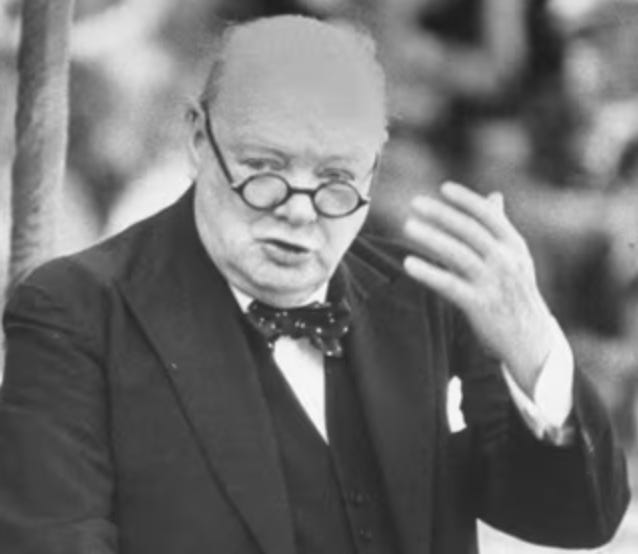
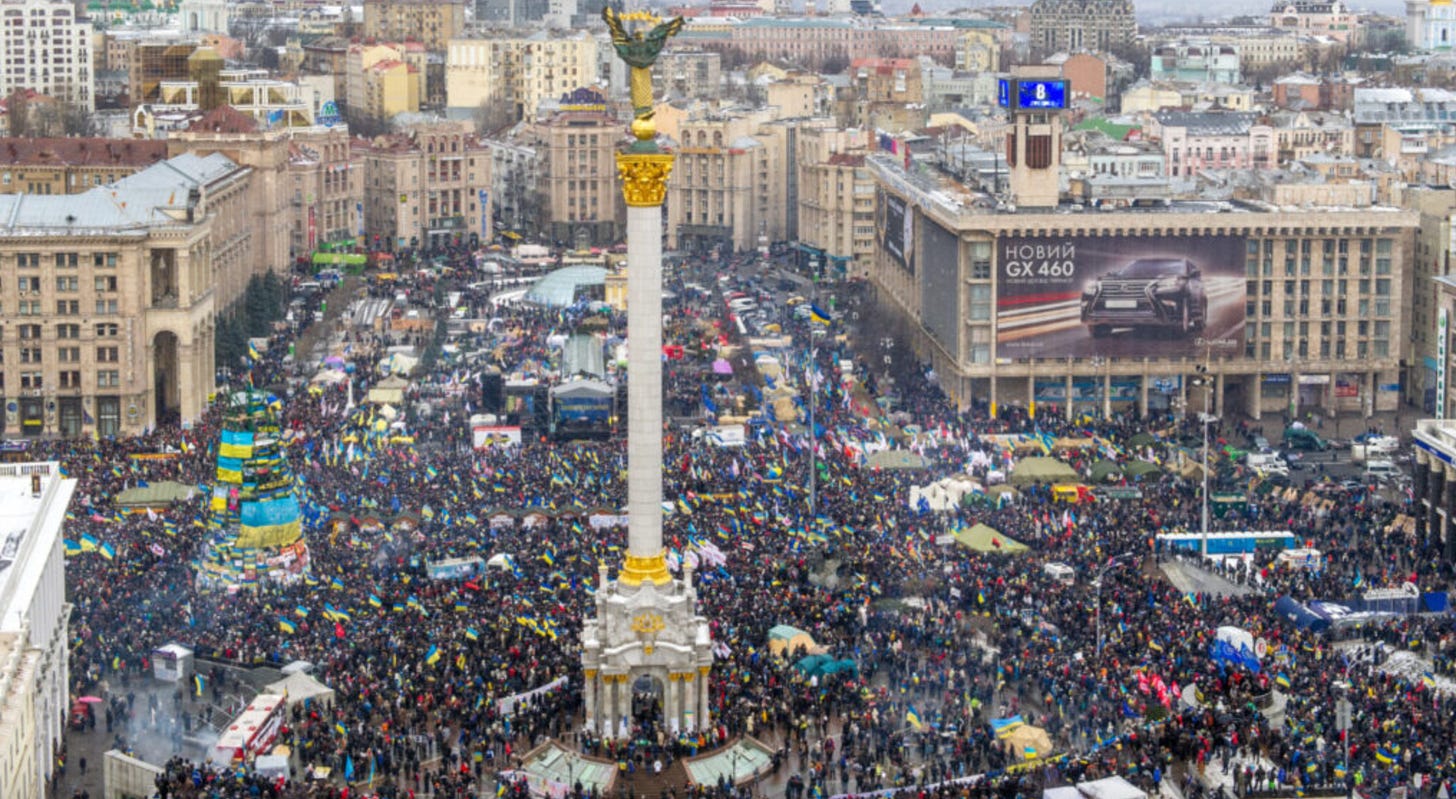
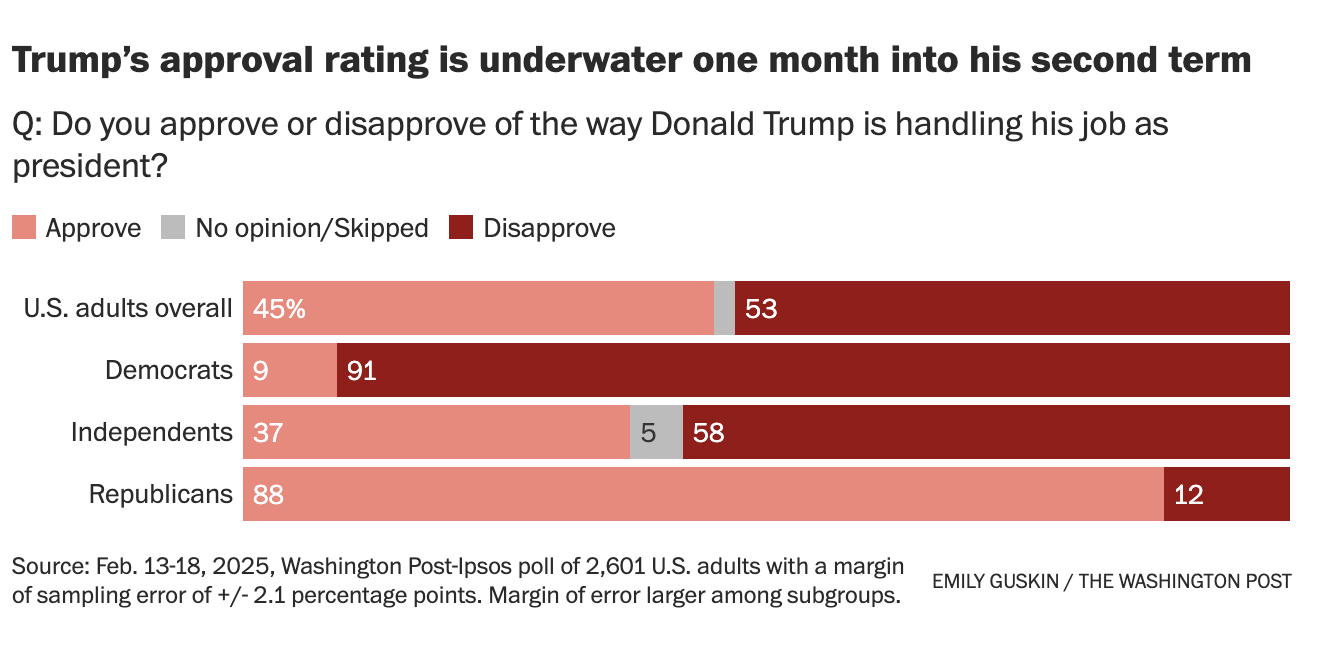
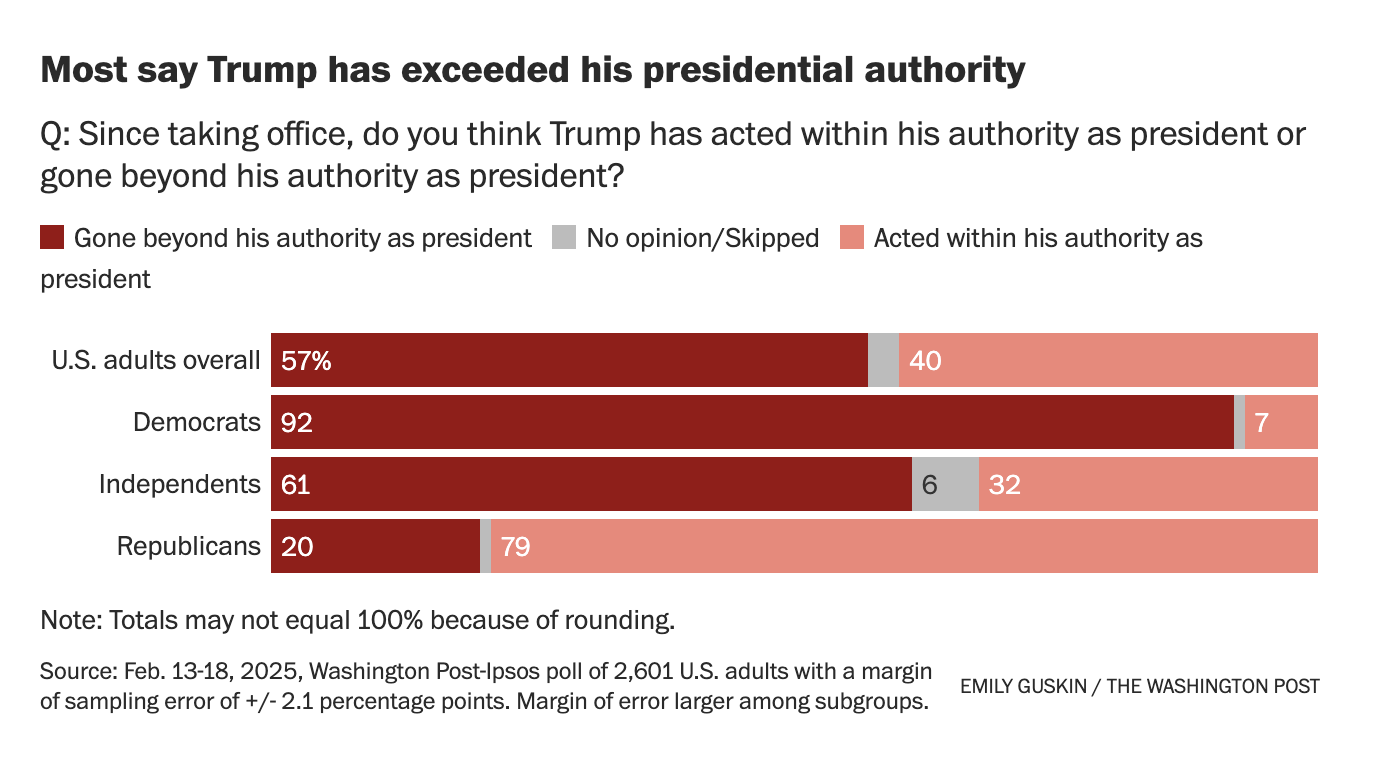
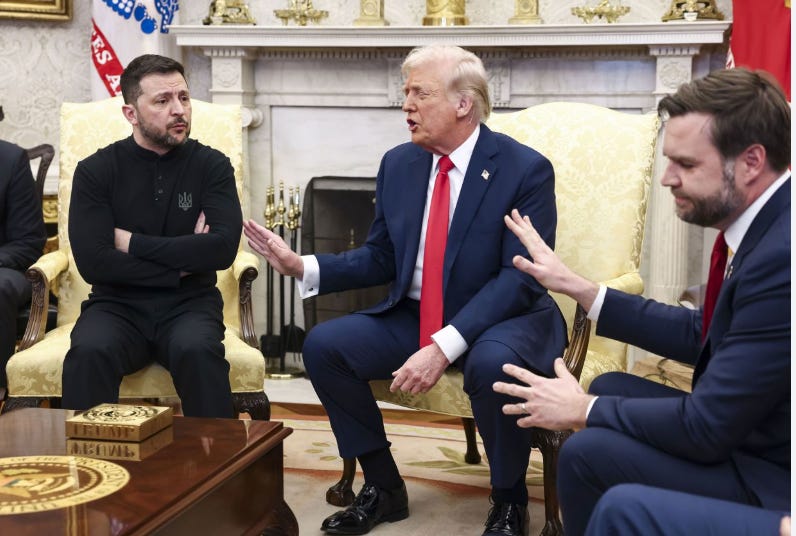
You wrote what I have been thinking for the past 5 weeks. Thank you for the quotes and links to Churchill. This regime is behaving as expected. Maybe that means We the People must act in unexpected ways. Maybe it is time all of us who believe democracy is worth fighting for realize that even if the 3 special house elections April 1 were to bring the democrats control of the house, the people must make known on the eclipse and elsewhere our opposition to this gop regime which in my opinion has proved its illegitimate from day 1.
You are on target with Churchill's "correction". Well, he might have been just a bit pissed off at what he saw around him at that point. Right now, I really think the response here in the Un-United State, from both right and left, will tell all the world the answer.
Churchill is totally apropos.